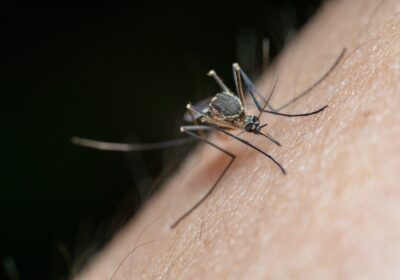Natural Insect Repellents in Australia – The Ultimate Guide
Australia’s warm climate and diverse wetlands, forests and coasts support an enormous variety of insects. Mosquitoes, biting midges (“sandflies”), ticks, fleas and flies not only cause painful bites but also transmit serious diseases. Mosquitoes carry viruses such as Ross River virus, Barmah Forest virus, Murray Valley encephalitis and dengue, while ticks can transmit tick‑borne diseases and cause allergic reactions. These pests breed quickly in Australia’s changing climate and can ruin outdoor activities. Chemical repellents like DEET remain the gold standard for personal protection, but there is a growing desire for botanical alternatives. Essential oil‑based repellents smell pleasant and are biodegradable but often provide shorter protection than synthetic repellents. This e‑book examines the Australian context of insect pests, reviews the science behind natural repellents, and profiles Pestrol Australia as a trusted supplier of natural repellents.
Insect pests in Australia
Mosquitoes
Over 300 mosquito species are recorded in Australia. Aedes, Culex and Anopheles species are the most widespread and many are vectors of disease. Female mosquitoes require blood to develop their eggs and bite most actively at dawn and dusk. Ross River and Barmah Forest viruses are the most common mosquito‑borne diseases in Australia. Queensland Health warns that there is a heightened risk of Ross River virus when mosquito populations surge, and emphasises that people cannot eradicate mosquitoes completely. Other diseases such as Murray Valley encephalitis and Kunjin virus occur sporadically. In far‑northern Queensland, Aedes aegypti mosquitoes can transmit dengue and Zika viruses.
Mosquitoes breed in a variety of habitats including permanent wetlands, rainwater tanks, saltmarshes, mangroves and even small containers around houses. Local councils advise residents to reduce breeding by emptying plant pot saucers, bird baths and other water‑holding items weekly and by screening tanks and drains. Because mosquitoes cannot be eradicated, personal protection is essential.
Biting midges (sandflies)
Biting midges, commonly called sandflies, are tiny flies (1–3 mm) belonging to the family Ceratopogonidae. Larvae develop in moist, muddy habitats such as saltmarshes, mangrove mud flats and estuarine shorelines. Adult midges are most active around sunrise and sunset and can infiltrate houses through unscreened windows. Midges are not known to transmit human disease in Australia but their bites cause intense irritation. Because of their small size, midges can pass through standard mosquito mesh; therefore, residents in coastal regions use fine insect screens and topical repellents for protection.
Ticks and fleas
Ticks are arachnids related to spiders. The paralysis tick (Ixodes holocyclus) is endemic along Australia’s eastern coast and can inject a neurotoxin that causes paralysis in pets and occasionally humans. Tick bites may also transmit pathogens such as Rickettsia and Borrelia species. Fleas include Ctenocephalides felis (cat flea) and Ctenocephalides canis (dog flea). Flea bites cause itchy welts, and fleas can transmit tapeworms and Bartonella henselae. Removing leaf litter, mowing lawns and treating pets with veterinary products reduces tick and flea populations.
Flies, leeches and other nuisance insects
March flies, bush flies and stable flies deliver painful bites and are common in rural areas. Leeches inhabit damp forests and attach to exposed skin. Repellents containing citronella or eucalyptus oil can discourage leeches. Stable flies breed in animal manure; reducing breeding sites helps control them.
Regulation and safety of insect repellents
APVMA registration and active ingredients
All insect repellents sold in Australia must be registered with the Australian Pesticides and Veterinary Medicines Authority (APVMA). Registration ensures products are tested for safety and efficacy before sale. The University of Sydney’s mosquito expert, Dr Cameron Webb, explains that only a small number of active ingredients are registered for personal repellents and any product on shelves will contain at least one of these. Approved actives include:
- DEET (diethyltoluamide). The most widely used repellent globally; DEET formulations from 10 % up to 80 % provide durable protection.
- Picaridin. A colourless synthetic developed in the 1980s; effective at concentrations under 20 % and considered safe.
- p‑menthane‑3,8‑diol (PMD or Citriodiol). Derived from oil of lemon eucalyptus (Corymbia citriodora). Formulations containing PMD provide protection comparable to DEET. Unlike essential oils, PMD is produced by converting citronellal into PMD and related acetals; the resulting Citriodiol contains about 71 % PMD and retains natural co‑constituents that enhance repellency
Botanical repellents using essential oils must also be registered. Products sold at markets without registration may be ineffective or unsafe. The University of Sydney notes that while some “natural” formulations containing tea tree oil or other botanicals have APVMA registration, essential oil repellents generally provide shorter protection and must be reapplied more frequently. The Western Australia Department of Health explicitly states that repellents using botanical extracts offer limited protection—often under 30 minutes—and should not be relied upon for prolonged exposure.
Guidelines for use
Health authorities recommend applying repellent directly to all exposed skin. Repellent should be used in combination with other protective measures such as wearing long sleeves, pants and shoes, and avoiding outdoor activity at peak biting times. The University of Sydney advises applying repellent as a thin, even layer rather than dabbing or spraying into the air. For children, WA Health suggests avoiding DEET or picaridin on infants under 12 months and avoiding PMD products on children under 36 months.
When using any repellent:
- Always read the label and follow directions.
- Apply only to exposed skin; do not apply under clothing.
- Avoid contact with eyes and mouth.
- Reapply after swimming or excessive sweating.
- Wash treated skin with soap and water once exposure risk has passed.
Wearable devices such as wristbands or clip‑ons impregnated with botanical extracts or DEET are not recommended; WA Health notes these devices provide little protection.
Essential oils and plant‑based repellents
Oil of lemon eucalyptus (Citriodiol®)
Oil of lemon eucalyptus (OLE) is a distillate of Corymbia citriodora. Citrefine International modifies OLE so that citronellal in the oil converts into PMD and related compounds; the resulting product, marketed as Citriodiol, contains at least 64 % PMD and about 71 % on average. The process retains other naturally occurring constituents (iso‑pulegol, citronellol and acetals) that synergise with PMD to provide longer‑lasting repellency than synthetic PMD alonecitrefine.com. Citriodiol is registered under various names worldwide and forms the active ingredient in products like Mosi‑guard.
Studies show that formulations containing 32 % lemon eucalyptus oil (PMD) provided over 95 % protection against mosquitoes for three hours. Medical News Today notes that high‑concentration OLE can provide up to two hours of full protection but may cause skin irritation at high doses. WA Health lists PMD as an approved active ingredient and notes that oil of lemon eucalyptus products provide effective protection comparable to DEET.
Tea tree oil (Melaleuca alternifolia)
Tea tree oil is distilled from the leaves of Melaleuca alternifolia, native to Australia. It is well known for antimicrobial and anti‑inflammatory properties. Field studies indicate that repellents containing tea tree oil repel mosquitoes, bush flies and biting midges. Healthline cites research showing that tea tree oil‑based products effectively reduce mosquito landings and bites. Tea tree oil is included in some registered repellents but may cause irritation if undiluted; it should be diluted in a carrier such as coconut oil or cream before applying to skin.
Blue cypress (Callitris intratropica)
Blue cypress oil is distilled from the heartwood of Callitris intratropica, a conifer endemic to northern Australia. A recent laboratory and field study examined a lotion containing blue cypress oil. In the laboratory, a 10.5 % concentration provided about 80 % protection initially but dropped to 70 % after one hour; in the field the lotion gave 93 % protection at the start but fell to 50 % after one hour. The study concluded that plant‑based repellents like blue cypress are biodegradable and considered safe but provide shorter protection due to high volatility. The lotion tested was formulated as a cream to hold essential oils on the skin longer.
Citronella
Citronella oil, obtained from Cymbopogon grasses, is widely used in candles, sprays and bracelets. When formulated correctly it can be as effective as DEET but generally offers about two hours of protection. Medical News Today notes that high‑concentration citronella provides up to 120 minutes of complete protection but evaporates quickly; high doses may irritate skin. Citronella candles and coils repel mosquitoes in localized areas but should not be relied on for personal protection.
Lavender
Lavender (Lavandula angustifolia) essential oil has analgesic, antifungal and antiseptic properties. A 2002 study found that a plant‑based repellent containing lavender oil effectively repelled adult mosquitoes. Lavender oil may also soothe insect bites. However, like most essential oils, it evaporates quickly and should be reapplied frequently.
Thyme
Thyme (Thymus vulgaris) oil is rich in thymol and carvacrol. Research shows that burning thyme leaves produces 85 % protection for 60–90 minutes. A 5 % thyme oil solution applied to hairless mice provided 91 % protection. Because thyme oil is highly concentrated, it must be diluted (e.g., five drops in 50 mL of carrier oil) before applying to skin.
Catmint (catnip) and other Lamiaceae oils
Catmint (Nepta cataria) produces nepetalactone, a potent mosquito repellent. In some studies catnip oil was 10 times more effective than DEET. Basil (Ocimum basilicum) essential oil provided 100 % protection for more than six hours in a laboratory study but about 40 % protection outdoors. Peppermint oil offered complete protection for 150 minutes against yellow‑fever mosquitoes but required high concentrations and has limited field evidence. Oregano, red thyme, lemongrass and clove oils also show repellent activity. Geraniol, derived from geraniums, provides 2–4 hours of protection but may irritate skin and eyes.
Neem
Neem oil from Azadirachta indica has insecticidal properties. Studies report that a 20 % neem oil cream provided over 70 % protection for three hours Medical News Today notes similar protection for 20 % neem oil but cautions that research is inconclusive and that neem is not approved as a topical repellent in many countries, Some users experience skin irritation.
Soybean and coconut oil
Soybean oil itself has limited repellent properties but acts as a carrier that prolongs the action of other oils. Products such as Bite Blocker combine soybean with coconut and geraniol to provide prolonged protection. Coconut oil is not a repellent but reduces volatility of actives and prevents skin drying. A study in India found that eucalyptus oil in a coconut oil base provided 93 % protection for up to four hours.
Clove, cinnamon and others
A clove oil mixture containing eugenol provided protection against yellow fever mosquitoes for up to 96 minutes. Cinnamon oil can kill mosquito eggs and repel adult mosquitoes; diluted cinnamon oil repelled mosquitoes but high concentrations cause skin irritation, Always dilute clove or cinnamon oil (1–2 %) in a carrier before use.
Comparing natural repellents with synthetic products
Natural repellents appeal to consumers seeking “chemical‑free” options. They are biodegradable, derived from renewable plants and often smell pleasant. However, essential oil molecules are highly volatile and evaporate quickly, reducing protection time. WA Health emphasises that botanical extracts usually provide less than 30 minutes of protection. Even high‑performance plant actives like PMD require higher concentrations and more frequent application than DEET or picaridin. For example, a 32 % PMD formulation offered three hours’ protection, whereas 20 % DEET can last six hours or more. Plant oils may also cause allergic reactions or photosensitivity; therefore, patch testing and dilution are crucial.
Synthetic repellents such as DEET and picaridin have decades of safety data and are recommended for travel to disease‑endemic regions. They provide long‑lasting protection (up to 10 hours) and require fewer reapplications. Studies show that DEET, when used as directed, has minimal adverse effects. For high‑risk areas, authorities recommend DEET or picaridin products, with PMD as an alternative. Natural repellents are best suited to situations with low disease risk or as supplementary products for those seeking plant‑based solutions.
Do‑it‑yourself natural repellent recipes
For readers who enjoy making their own products, the following recipes provide gentle alternatives. Note, however, that homemade repellents are not APVMA‑registered; use them cautiously and discontinue use if irritation occurs. Essential oils should never be applied undiluted to skin.
Basic essential oil spray
- 30 mL witch hazel or vodka (acts as a preservative and disperses oils)
- 10 mL fractionated coconut oil or vegetable glycerine (carrier)
- 30 mL distilled water
- 10 drops lemon eucalyptus (PMD) oil
- 6 drops lavender oil
- 6 drops tea tree oil
Combine liquids in a dark glass spray bottle and shake well. Spray lightly on exposed skin and clothing every two hours. Avoid eyes and mouth.
Cream‑based repellent for sensitive skin
Creams hold essential oils on the skin longer than sprays. To make a 50 mL batch:
- 45 mL unscented body lotion or shea butter cream
- 12 drops lemon eucalyptus oil
- 6 drops lavender oil
- 4 drops blue cypress or tea tree oil
Mix thoroughly and store in a sealed jar. Apply a small amount to wrists, ankles and exposed areas. Patch test before use on babies or sensitive skin.
Citronella candle jar
Plant oils can deter insects when evaporated. To make a repellent candle:
- Small glass jar
- Beeswax or soy wax pellets
- Cotton wick
- 20 drops citronella oil
- 10 drops lemongrass oil
Melt wax, insert wick and stir in essential oils. Allow to set. Burning the candle outdoors will diffuse repellent vapours for a localised area. Do not rely on candles alone for personal protection.
Integrated strategies for avoiding insect bites
Natural repellents are most effective when combined with other measures:
- Physical barriers. Screen windows and doors, seal gaps and use fine mesh to keep mosquitoes and midges out. Wear long sleeves, pants and socks, especially during dawn and dusk.
- Behavioural adjustments. Avoid outdoor activity during peak biting times. Sleep under a mosquito net when camping or in unscreened houses.
- Environmental management. Remove stagnant water where mosquitoes breed: empty plant saucers, clean gutters, cover rainwater tanks and stock ponds with native fish. In coastal regions remove weed mats in mangroves to reduce midge breeding.
- Chemical and biological control. Councils sometimes apply larvicides (e.g., Bacillus thuringiensis israelensis) to wetlands. Homeowners can use pyrethrum sprays to kill adult mosquitoes inside houses, ensuring rooms are ventilated afterwards.
- Pet protection. Use veterinary tick and flea treatments on dogs and cats. Check pets and humans for ticks after bushwalks; remove ticks promptly with fine‑tipped tweezers. Wear repellent clothing or treat clothing with permethrin when walking in tick‑infested areas.
Pestrol Australia – Leading supplier of natural repellents
Pestrol is a long‑established Australian company specialising in do‑it‑yourself pest control and garden solutions. The company manufactures and distributes high‑quality products through retail, wholesale and professional channels. With over 20 years of experience, Pestrol helps Australians manage pests such as rodents, insects, snakes and wildlife. Their mission is to provide safe, reliable and affordable solutions tailored to Australian conditions; they also offer fertilisers and garden care products. Pestrol ensures that products meet Australian standards and emphasises environmental responsibility. Customers can access expert advice via phone, live chat or social media. The company’s website features categories for personal mosquito repellents, insect traps, bird spikes and garden tools.
Good Riddance insect repellent range
Good Riddance Sensitive (250 mL) is one of Australia’s few natural repellents suitable for babies over three months, pregnant women and people with eczema. The cream is clinically proven to provide long‑lasting protection against mosquitoes, midges and sandflies—vectors of Ross River and dengue viruses. It is DEET‑free and citronella‑free; instead, it uses 100 % pure essential oils, including lavender and Cymbopogon (lemongrass) oils. The cream contains shea butter and beeswax to create a protective barrier and hold active ingredients on the skin longer than sprays. Field testing in Bundaberg demonstrated that Good Riddance Sensitive was significantly more effective against midges and sandflies than DEET‑based alternatives. Active constituents are 12.36 g/L lavender oil and 6.18 g/L Cymbopogon oil (lemongrass). The product is APVMA‑registered and developed in Darwin, with testing in Kakadu. https://www.pestrol.com.au/buy-online/good-riddance-insect-repellent-sensitive-250ml
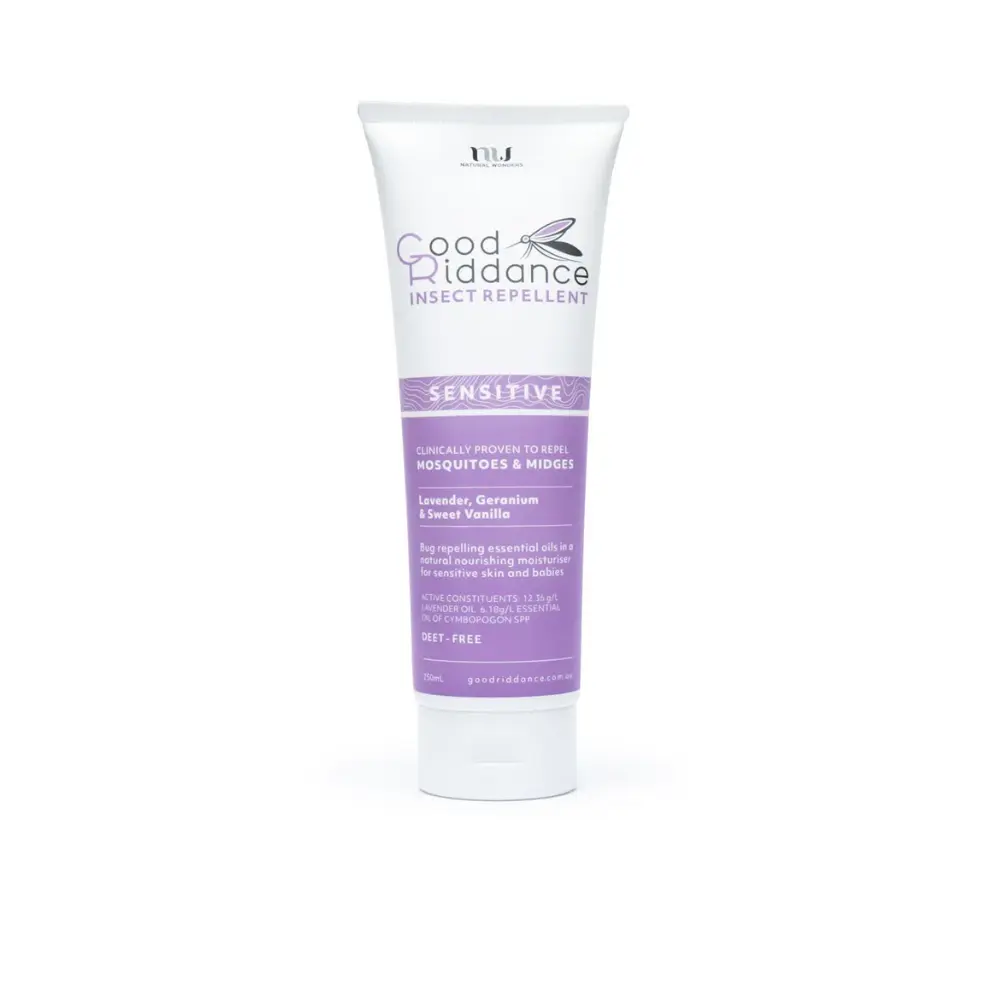
Good Riddance Tropical (100 mL) is a cream‑based repellent designed for Australia’s tropical conditions. The natural ingredients provide a skin‑friendly barrier against mosquitoes, midges, sandflies, march flies and stable flies. Key features include long‑lasting protection due to its cream base, gentle formulation suitable for sensitive skin, a pleasant subtle fragrance, and a plant‑based, paraben‑free composition. The product is DEET‑free and phthalate‑free. Directions advise applying a small amount to exposed skin, paying attention to ankles, wrists and neck, and reapplying after swimming or sweating. Active constituents include 12.2 g/L essential oil of Cymbopogon spp. and 9.4 g/L lemon tea tree oil; the cream contains sustainably sourced beeswax and is not suitable for vegans. APVMA approval number 87414/118313 is listed. https://www.pestrol.com.au/buy-online/good-riddance-tropical-insect-repellent-100ml/
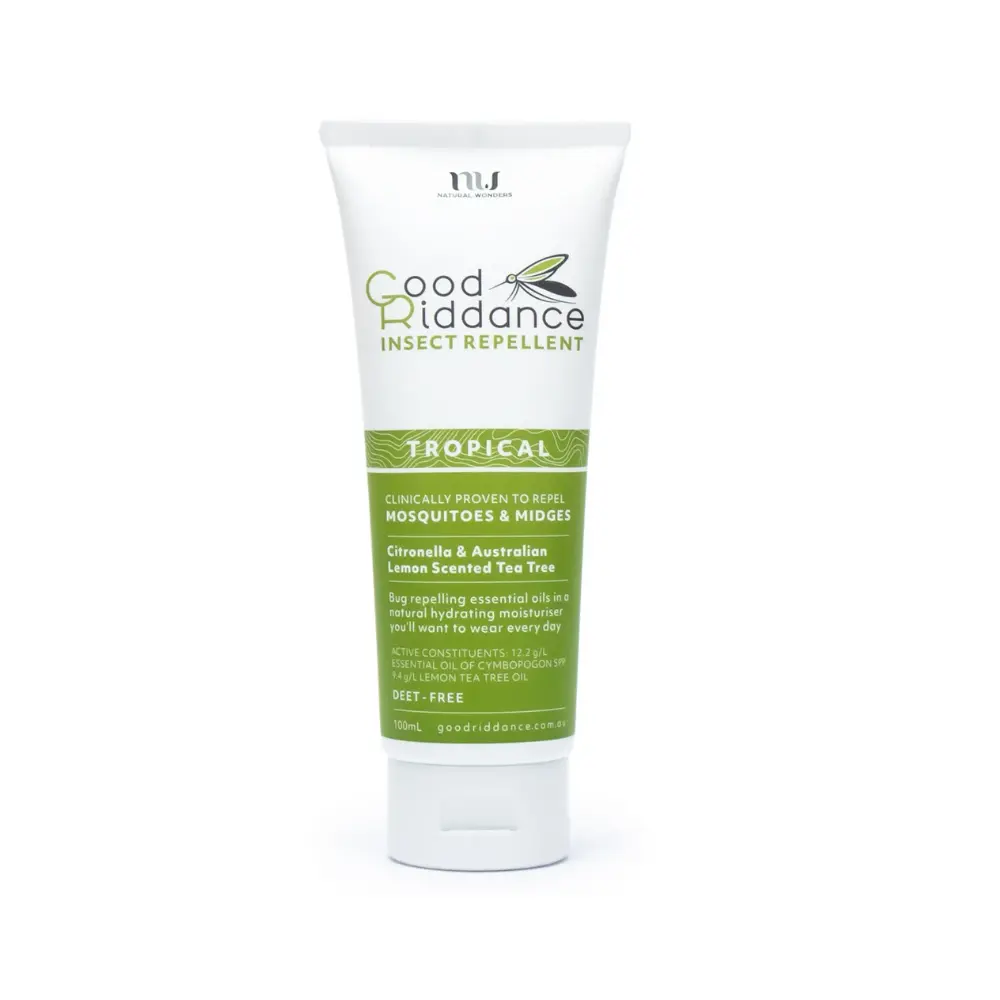
Mosi‑guard (Citriodiol‑based)
Pestrol stocks Mosi‑guard products, which use Citriodiol®, the naturally derived PMD from lemon eucalyptus oil. The Mosi‑guard brand page on Pestrol explains that Mosi‑guard is a natural insect repellent offering protection for at least six hours. It is available as a roll‑on or spray and protects against mosquitoes, sandflies, ticks, midges and even leeches. The page notes that Mosi‑guard’s active ingredient is Citriodiol, a renewable extract of lemon eucalyptus, and that the product is registered for use in children from three months of age in the United Kingdom. While individual product pages were inaccessible during this research, general information from the manufacturer states that Mosi‑guard is DEET‑free, plant‑based and provides long‑lasting protection in tropical regions. Citriodiol’s high PMD content (around 70 %) and co‑constituents give it superior efficacy compared with essential oils. https://www.pestrol.com.au/shop/shop-by-brand/mosi-guard/
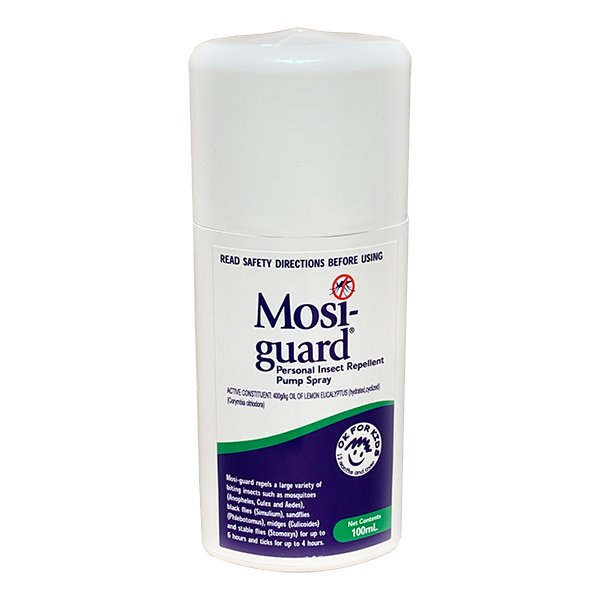
Other natural repellents and accessories
Pestrol also sells natural mosquito repellent sprays (Sandfly and Mozzie Stuff), citronella coils, permethrin‑impregnated mosquito nets, and devices like the Pestrol Outdoor Exterminator that attract and trap insects. Their insect repellent category emphasises products approved by respected agencies and free of harmful chemicals. The company highlights that there is no need to use DEET to obtain effective protection because their natural products have been tested and recommended worldwide.
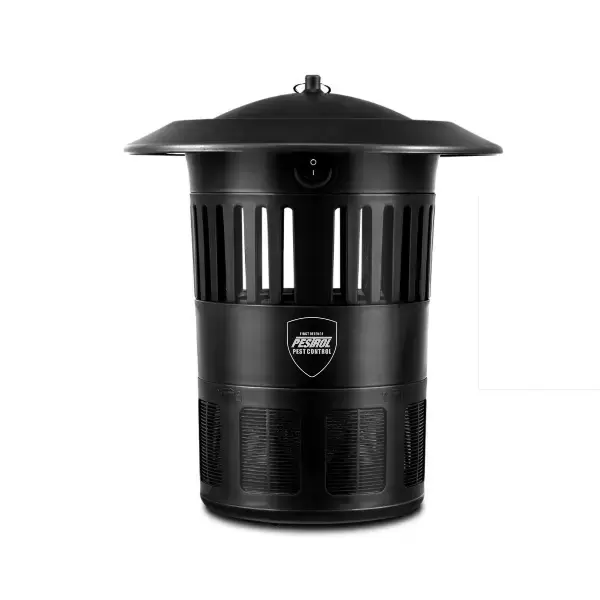
Frequently asked questions
Q: Are natural insect repellents safe for babies and pregnant women?
Some products are formulated specifically for sensitive skin and young children. Good Riddance Sensitive is marketed as safe for babies over three months and for pregnancy. However, WA Health recommends avoiding DEET or picaridin on infants under 12 months and avoiding PMD products on children under 36 months. Always seek advice from a health professional and conduct patch tests.
Q: How often should I reapply a natural repellent?
Because essential oils evaporate quickly, natural repellents require more frequent reapplication than synthetic products. Depending on the formulation, reapply every one to three hours. Creams such as Good Riddance hold oils longer than sprays.
Q: Can I mix my own essential oils?
You can make homemade repellents, but they are not APVMA‑approved. Always dilute essential oils in a carrier and perform a patch test. Some oils like clove and cinnamon can irritate skin. Avoid using homemade mixtures on young children or in malaria‑endemic regions.
Q: What about insect‑repellent bracelets or smartphone apps?
Health authorities warn that wearable devices impregnated with botanical extracts or DEET are largely ineffective. Smartphone apps claiming to repel mosquitoes via ultrasonic tones also lack scientific evidence.
Finally
Australia’s diverse landscapes mean insects will always be part of the environment. Mosquitoes, midges, ticks and flies pose health risks and annoyance, so personal protection is vital. While DEET and picaridin remain the most effective repellents, there is growing interest in plant‑based alternatives. Essential oils such as lemon eucalyptus (PMD), tea tree, blue cypress, citronella, lavender, thyme and basil have demonstrated repellent properties, but their volatility means shorter protection times and more frequent application. Citriodiol®, derived from Corymbia citriodora, offers the best performance among botanicals and forms the basis of products like Mosi‑guard.
Natural repellents are best used within an integrated strategy that includes physical barriers, environmental management and behavioural changes. Always choose APVMA‑registered products and follow label directions. Pestrol Australia provides a range of registered natural repellents, including the Good Riddance creams and Mosi‑guard, which combine plant‑derived actives with nourishing carriers to extend protection. With informed choices and sensible use, Australians can enjoy the outdoors while minimising insect bites.
References:
Images from https://www.pestrol.com.au/
https://www.health.wa.gov.au/Articles/N_R/Personal-insect-repellents
https://www.sydney.edu.au/news-opinion/news/2021/01/12/top-tips-for-choosing-a-mozzie-repellent.html.
https://citrefine.com
https://www.medicalnewstoday.com/articles/325337
https://pmc.ncbi.nlm.nih.gov/articles/PMC10484250
https://www.healthline.com/health/kinds-of-natural-mosquito-repellant
https://gladstone.qld.gov.au
https://www.pestrol.com.au






